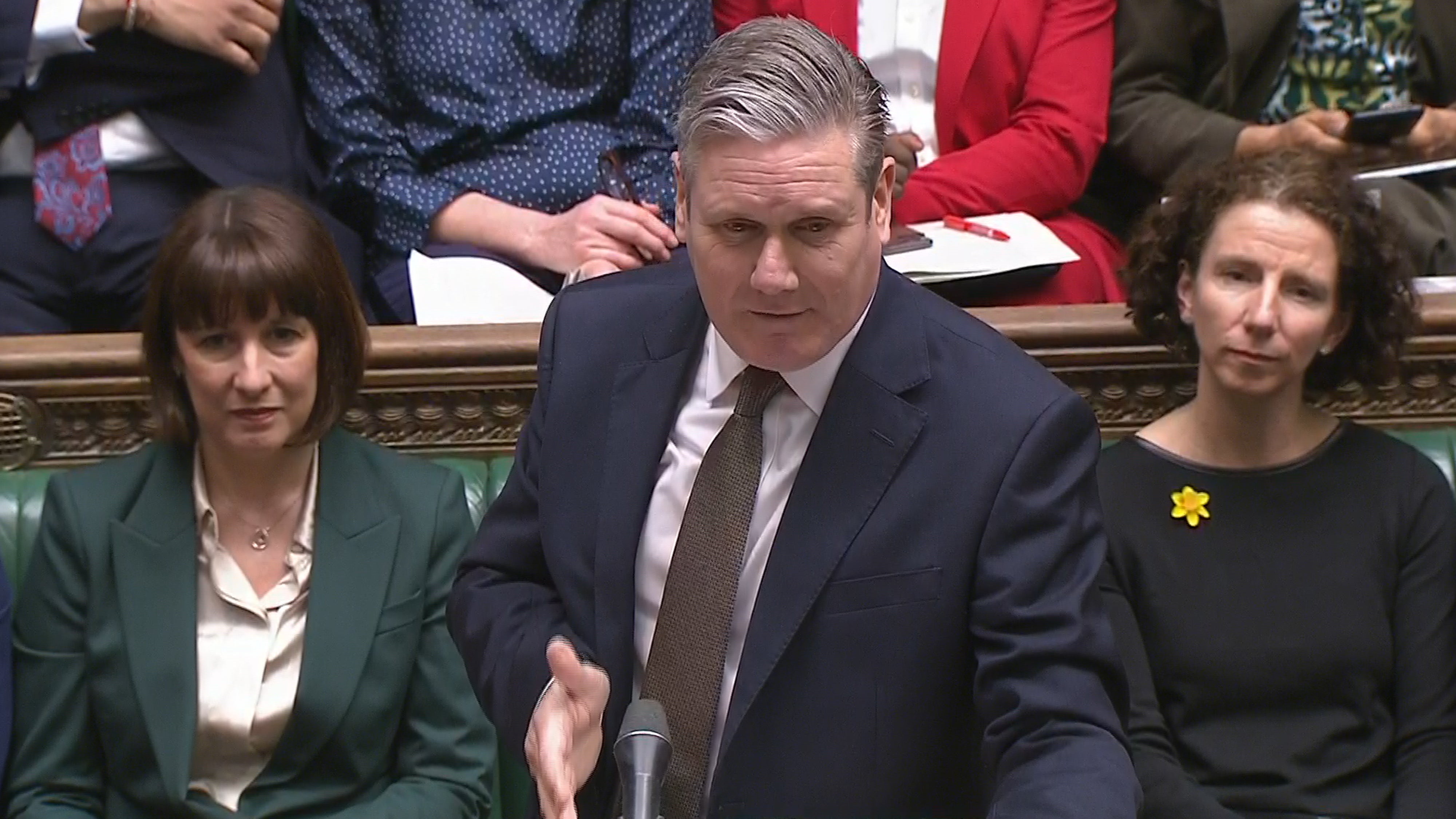Does Labour have a plan to stop the boats?
At PMQs, Keir Starmer made light of the government’s much-maligned plan to deport asylum seekers to Rwanda. But if Sunak’s bill was somehow to become law and deportation flights actually take off, it would wipe the smile of Labour’s face, says John Rentoul


Behind the playground knockabout at Prime Minister’s Questions lay one of the serious issues of the undeclared election campaign. “Why is the prime minister so scared to call an election?” asked Keir Starmer.
“I thought he’d be the most grateful,” replied Rishi Sunak, “because he’s now got time to come up with a plan for Britain.”
It wasn’t the most effective response in the chamber, because it implied that the prime minister was indeed too scared to put his case to the voters. But the claim that Labour doesn’t have a plan does also keep up the pressure on Starmer – who is, I hear, worried about what a Labour government would actually do about the small boats.
Starmer claimed that the Rwanda bill currently shuttling between the House of Commons and the House of Lords will not work. He asked if Sunak could see the flaw in a plan that is meant to deter people from crossing the Channel if it will deport fewer than 1 per cent of the backlog of asylum claims.
Sunak did not answer. Starmer suggested that the reason for that was that the prime minister knows that it will not work, claiming that Sunak, when he was chancellor, tried to withhold funding for the policy on grounds that it was a waste of money.
The prime minister didn’t contradict him, resorting to insults about who Starmer had chosen to represent as a lawyer.
So Starmer, after giving as good as he got – “I’ve prosecuted more people smugglers than he’s had helicopter rides” – returned to the attack by quoting Robert Jenrick, Sunak’s former ally and former immigration minister, who said the current Rwanda bill is not a “credible deterrent”.
Again, Sunak chose not to engage in a debate on the substance of the policy. Whatever he may have thought about the scheme’s value for money when he was chancellor, he seems to have become convinced, from the slightly different perspective of No 10, that it will be effective – as a vote-winner if not as an actual deterrent.
Starmer tried to cast doubt on the sincerity of this conversion by claiming that the prime minister “never had the courage to stand up to his party”. But it is possible that Sunak has not been bullied by the anti-immigration wing of the Tory party. It may be that the prime minister genuinely thinks that the policy can help him turn the opinion polls around.
He may even believe that, if the flights start to take off and the government’s talk of “thousands” of asylum seekers being taken to Rwanda begins to seem plausible, the policy would actually discourage some migrants from attempting the Channel crossing.
Not that there is much time for any deterrent effect to show up in the figures before the election. Any fluctuations in the numbers of people crossing in small boats in the next few months are going to be impossible to attribute to the effect of the policy rather than to that of the weather.
But if the flights do take off before the election it does then become not-ridiculous for Sunak to claim that they will have a deterrent effect. That is the dilemma facing Labour peers on Wednesday night and next week. Their usual posture is to oppose what they think of as bad bills presented to them by the Tory government, amend them and send them back to the Commons. When the Commons strikes out the amendments and sends a bill back, Labour peers usually sit on their hands and let it go. They would expect the same deference to the elected chamber from Tory peers if there is a Labour government.
On the Rwanda bill, however, many Labour peers feel so strongly that they are prepared to take risks with the constitutional convention and want to keep amending the legislation until it falls at the election.
In the end, I suspect that there isn’t a majority in the Lords for such a declaration of total war, so the Commons will get its way, even if the government seems curiously relaxed about the timetable. The bill is expected to return to the Commons on Monday, with the Easter recess due to start the next day.
If the bill does become law, Downing Street seems confident that the inevitable legal challenges can be overcome within weeks and that flights will take off in July. The policy then becomes a different kind of challenge to Labour, with Yvette Cooper, the shadow home secretary, promising to end the flights if they have started before the election.
I understand that there are tensions between Starmer and Cooper about how to handle this during the election campaign.
It seemed that Starmer had the upper hand in Prime Minister’s Questions today, but Sunak’s line about Labour needing “time to come up with a plan for Britain” may be the one that will echo longest. What will Labour do to stop the boats?






Join our commenting forum
Join thought-provoking conversations, follow other Independent readers and see their replies
Comments